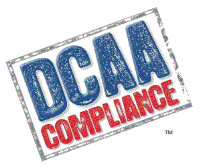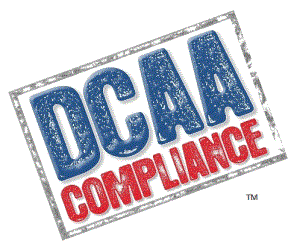You
You know who you are. Yes, you, the one trying to figure out just when DCAA is going to enter your life, or worse, a non DCAA auditor or government official is assessing your operations and accounting system. Perhaps, just perhaps, you already had the pleasure and are reading this simply to improve the experience (read: “recover from disaster”).
Why You?
If You Want the Money
Federal regulations require an approved accounting system before the government can award a cost type contract.[1]
- Cost type contracts are those contracts where the government reimburses the contractor for the contractor’s approved costs, director indirect, and sometimes a fee. The government recently expanded the definition to include fixed price contracts that allow for “progress payments”.
- Cost contracts make up almost half of the contracts issued by the federal government and the majority of service contracts.
Two Presidents, Regan and Obama, started out their presidencies trying to reduce or even forbid government cost type contracts. In both cases, the number of cost type contracts actually grew.
There is a wealth of government created documents justifying the use of cost type contracts. Most of them center on the necessity of the government to assume the risks associated with the contract. Since cost type contracts are a reality, let me just make two observations and move on:
- Cost type contracts require greater management and involvement on the government’s parts. They are involved in every aspect of the contract as opposed to simply writing a check upon delivery. DCAA has gone so far as to request from Congress in their annual report 24/7 access to contractor’s accounting systems. Greater government involvement translates into a larger number of government employees to manage an audit the process at all steps. In short, cost type contracts keep government employees ‘busy’ and ‘over worked’. DCAA continues to add new positons each of the last several years.
- You hear about cost overruns and this is one of the ‘selling’ points for cost type contracts. If you run over budget the government will send you a check. It happens, but there is a lot of paperwork involved and a lot of compliance requirements. More often than not, the opposite happens and contractors do not make as much money on cost type contracts as they would on fixed price work. This translates into an excellent reason why the government likes cost type contracts – the actual amount paid to the contractor is reduced and paid to the bureaucrats instead in the form of salaries and other benefits (see point one).
One of the bizarre results of the crisis government contracting entered into in the year 2008, is the increased award of cost type contracts to small contractors without an approved accounting system despite the requirements forbidding this. It started out by contracting officers just ignoring the regulations in order to get the critical contracts issued, but now some of them are actually ‘approving’ the accounting systems after the contractor fills out a form.
Of course contractors may pay for this action by the contracting officers. Recent Armed Services Board of Contract Appeals (ASBCA) decisions that asserted that a lack of an approved accounting system was no defense for the contractor[2] and contractors with cost contracts and an unapproved accounting system appear to be holding all of the risks.
I am not telling contractors to turn down contracts, I am just pointing out issues for consideration.
Your solution may be as simple as taking the contract and making sure your accounting system is fully compliant in anticipation of the day DCAA or another auditor working for the government shows up.
The process of adopting and implementing an accounting system that would win government approval reduces the contractor’s risk and provides critical information to help them identify and manage costs. |
Excerpt from Surviving a DCAA Audit available on Amazon

[1] FAR (16-301-3(a)(3)) “(3) The contractor’s accounting system is adequate for determining costs applicable to the contract or order…”
[2] ASBCA 56581 and 52593
